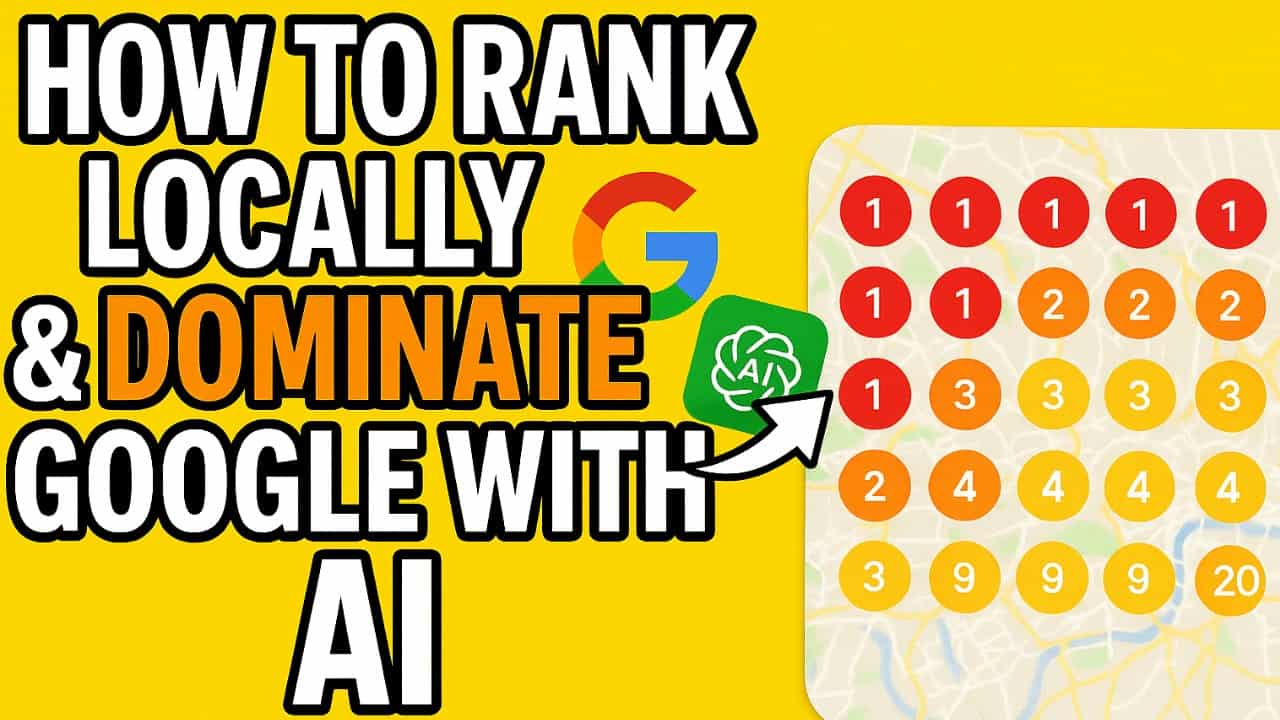If you’re a local business or service provider trying to generate leads in 2025, the local SEO landscape has changed dramatically. During a live session for NSI Org UK members in Solihull, Adam broke down the new reality of Google search and how early adopters can dominate AI-powered local rankings before their competitors even notice what’s happening.
Download Full Slide Deck
For full access to the slide deck used in the presentation, fill in the below form.
The Local Search Landscape Has Changed Forever
The days of 10 blue links and basic map pack rankings are gone. Google has rolled out AI Overviews, which summarise the most relevant businesses directly in search results—cutting down user clicks and only spotlighting the most trusted sources.
If you’re not showing up in these AI Overviews, you’re not even in the game.
- You’re missing high-intent leads
- You’re invisible in zero-click search
- You’re losing to early adopters who invested in their local SEO foundations early
Local SEO in 2025: What’s Working Now
To rank locally in 2025, you must align with how Google’s AI systems evaluate trust, context, and relevance. No more keyword stuffing or outdated link-building tactics. You need:
- Location-intent optimisation for every service area
- Authority content that answers niche-specific questions
- Consistency across Google Business Profile, citations, and site schema
- AI-friendly content formats that are structured, semantic, and current
Google’s AI is now pulling from an invisible knowledge layer that values structured data, NLP-rich text, and highly localised authority. Your brand must be positioned as the local expert in its niche—verified, trusted, and frequently cited.
What Matters Now for Ranking in AI-Powered Local Search
Google is no longer just crawling for keywords. Its algorithms now prioritise:
- Trust Signals (consistency across platforms, verified reviews, certifications)
- Local Relevance (location-specific content tied to searcher intent)
- Demonstrated Expertise (industry-specific answers to real customer questions)
Your site and brand feed the “AI Reference Layer” that fuels these summaries. That means you don’t even need to rank to influence the result—you need to be cited.
The Two-Pillar System: Google Business Profile + Website SEO
1. Google Business Profile (GBP)
- Fully complete your profile
- Keep NAP (Name, Address, Phone) accurate across directories
- Upload geo-tagged project photos
- Share weekly updates (“CCTV install in Solihull this week”)
- Focus reviews on keywords and service locations
2. Website SEO
- Build out location pages for every service + area
- Target bottom-of-funnel keywords (e.g., “access control systems Coventry”)
- Post topical blog content that answers relevant questions
- Embed trust with certifications, case studies, and clear CTAs
Without both of these optimised, you’re invisible where it matters most.
Using AI to Multiply Your SEO Output
AI isn’t replacing SEO, it’s multiplying your capacity if you know how to use it.
Use AI to:
- Create topical maps to structure your website content by service, location, and customer journey stage
- Generate FAQ blog posts and localised service content fast
- Refresh old content with new NLP keywords and structured data
- Ideate local PR stories to earn backlinks from regional sites
Breaking Into the Map Pack (Still Critical!)
Map results drive 70%+ of local enquiries. To get into the 3-pack:
- Build service area landing pages (not just one location page)
- Choose your GBP primary and secondary categories wisely
- Launch a structured review process with SMS/email QR code requests that mention keywords and locations
Proving You’re the Local Expert
Google doesn’t want generalists. It wants hyper-relevant, hyper-local experts. That means:
- City-specific landing pages with real photos, case studies, testimonials
- Location-based blog posts that document installs, events, or insights
- Contributions to local media or trade sites that link back to your brand
SEO Mistakes to Avoid in 2025
- Expecting fast results (real SEO = 3–6 months minimum)
- Publishing generic content with no local intent
- Ignoring technical performance (slow sites kill rankings)
- Depending entirely on ads instead of building durable organic visibility
Long-Tail Keyword Opportunities That Win
For example:
- “Retail theft prevention CCTV Sheffield”
- “Warehouse access control Manchester”
- “School alarm system installation Leeds”
Quick Wins You Can Implement This Month
Week 1:
- GBP optimisation
- Top 25 local citations
- Ranking audit
Week 2:
- Service + city pages
- Add schema (FAQ + LocalBusiness)
- Real images with keyword-rich file names
Week 3:
- Set up review system
- Upload case studies
- Blog with real customer Q&A
Week 4:
- GSC setup + keyword tracking
- Plan 3-month content schedule
- Outreach for backlinks
Final Word: The Window is Closing
The AI shift is real. Local SEO is no longer optional. The brands that act now will own local visibility for the next decade.
Once you have optimised locally, consider partnering with experts from our list of the best 15 SEO agencies in the UK for 2025.
Want help implementing it?
Grab our Local SEO Starter Kit or run a Map Visibility Check to see where you stand.

